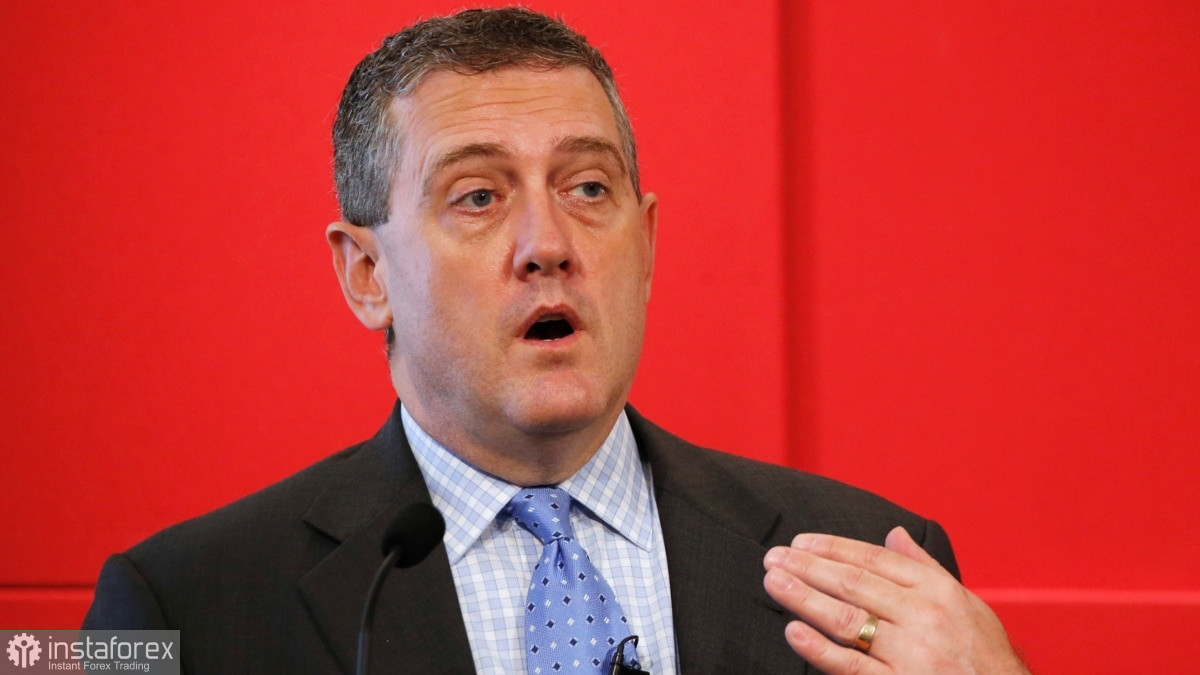
As stated in previous articles, the issue of a 0.75% rate increase in July can be considered resolved in principle. On July 26-27, most monetary committee members will vote in favor of a 0.7% rate hike, despite not all of them supporting such an aggressive stance. On Monday evening, the chairman of the Federal Reserve Bank of St. Louis, James Bullard, confirmed his commitment to the plan with the quickest possible rate increase to 3.5%. Recall that in recent months, the most active "hawk," Bullard, has advocated for raising the rate at the maximum rate to have the greatest impact on inflation as quickly as possible. According to Bullard's plan, the rate should reach 3.5% by 2022, allowing the Fed to reduce it slightly in 2023. Providing, of course, inflation permits it. But there is no doubt that the rate should be raised to at least 3.5%, and what will happen in 2023 remains to be seen. Bullard stated yesterday that the American economy is robust and can withstand a rate increase. The most recent nonfarm employment situation report demonstrates that the labor market is healthy, and there are no signs of a recession. A modest recession may begin the following year. Bullard also questioned whether the Fed would be able to return inflation to 2% without causing economic damage. Bullard's position is straightforward and, in some respects, even coincides with Powell's. The president of the Federal Reserve Bank of St. Louis believes that achieving a measurable reduction in inflation is necessary before considering the possibility of a recession. This strategy virtually guarantees that the winning bid will be submitted.
Risky currencies (euro, pound), stock markets, and the cryptocurrency market are likely to continue falling in light of the Fed members' disposition. The US stock market is unlikely to experience a collapse, whereas the euro currency is already experiencing one. Bitcoin and its "brothers" have taken a brief pause, but over the past six months, they have collectively lost up to two-thirds of their value. Consequently, the general trend in the financial markets remains unchanged. We also recall that the QT program went into effect on July 1 – the opposite of the QE program, resulting in a decline in the US money supply. Since interest rates are high and the money supply is decreasing, investment and lending volumes are falling. This will inevitably result in an economic "cooling."
Consequently, there is little doubt that the US economy will experience a recession. The European and British economies are also likely to be affected by this phenomenon. Therefore, the dollar should not be overly concerned.
 English
English 
 Русский
Русский Bahasa Indonesia
Bahasa Indonesia Bahasa Malay
Bahasa Malay ไทย
ไทย Español
Español Deutsch
Deutsch Български
Български Français
Français Tiếng Việt
Tiếng Việt 中文
中文 বাংলা
বাংলা हिन्दी
हिन्दी Čeština
Čeština Українська
Українська Română
Română

